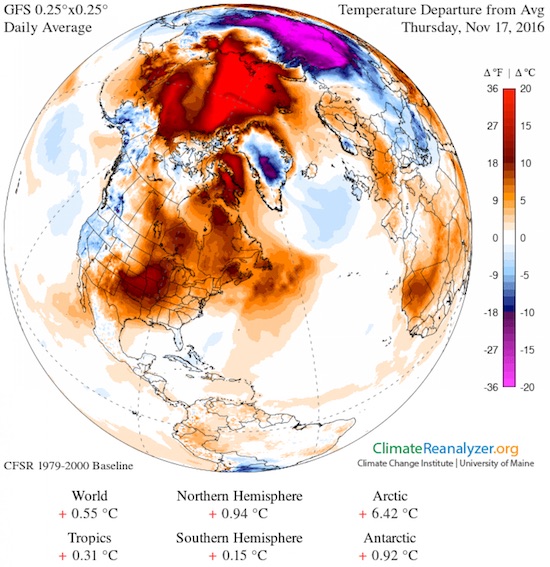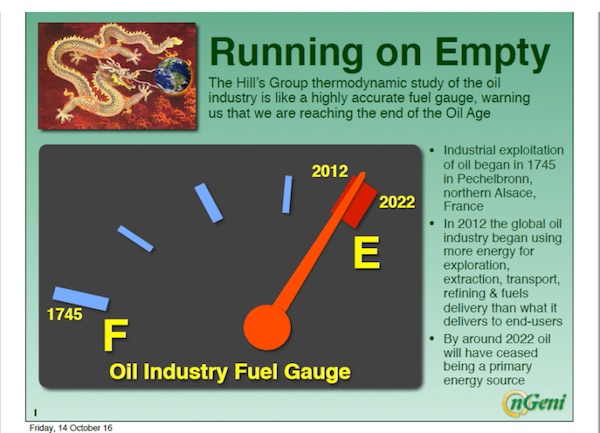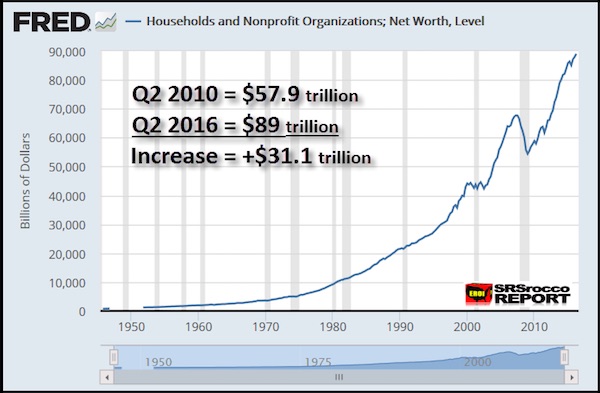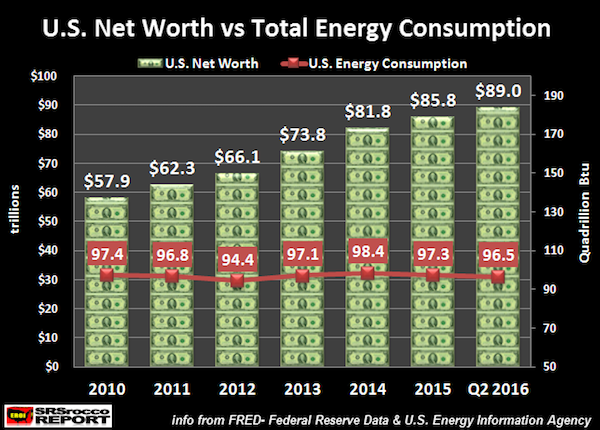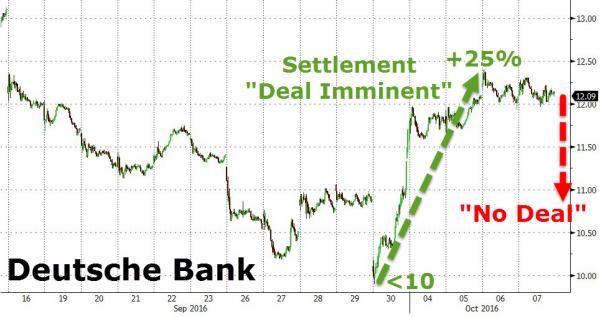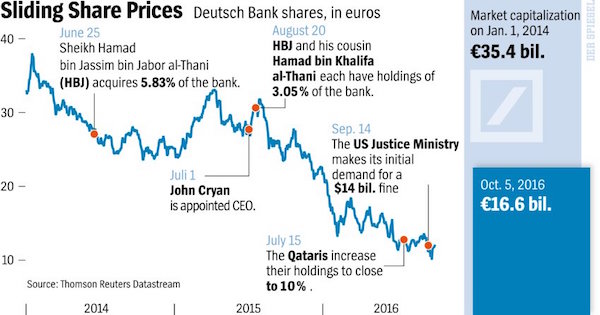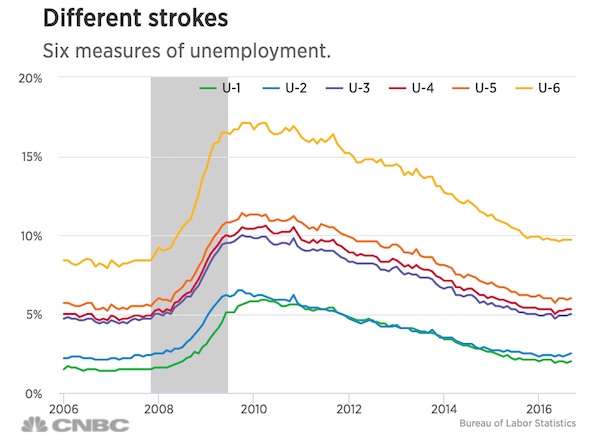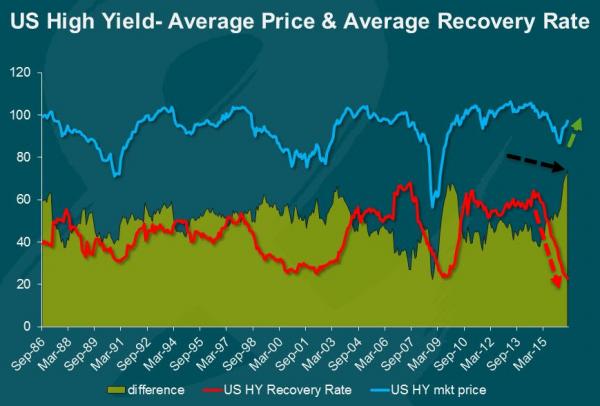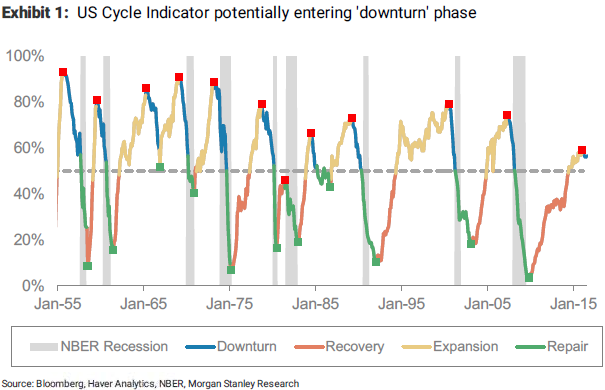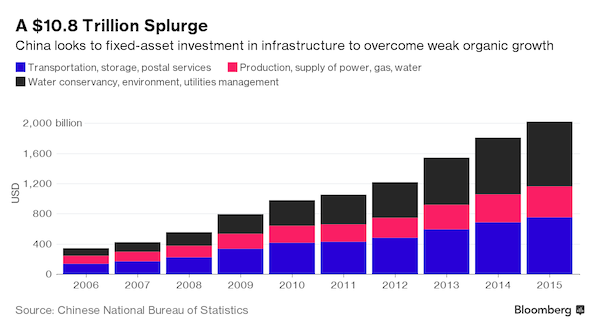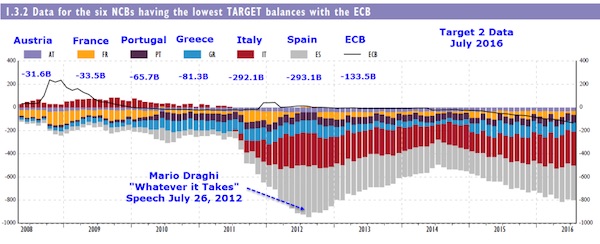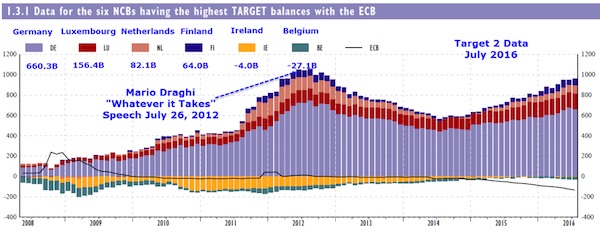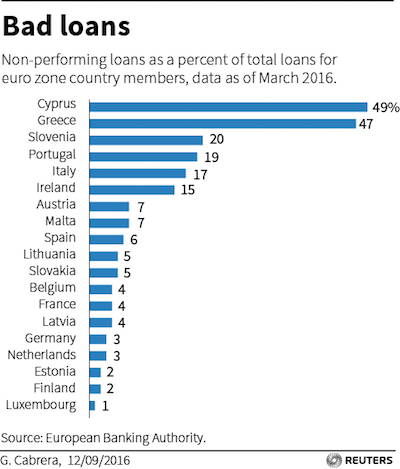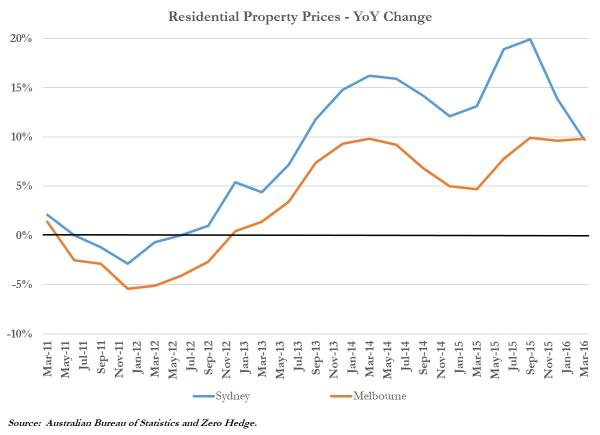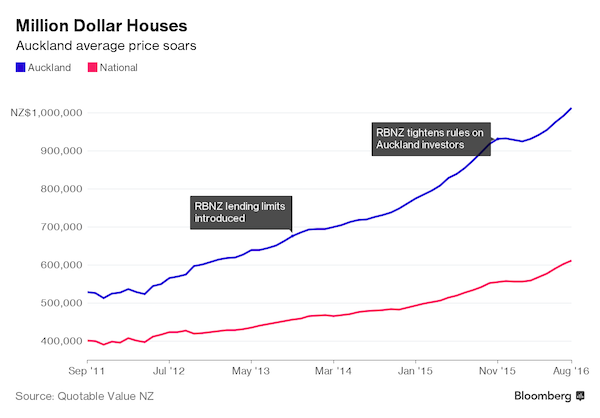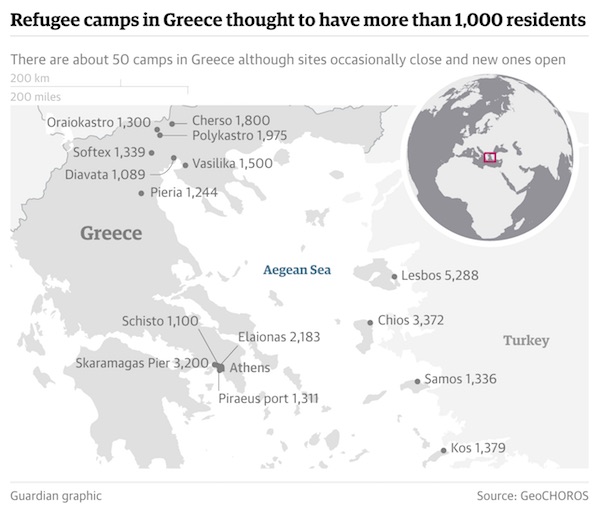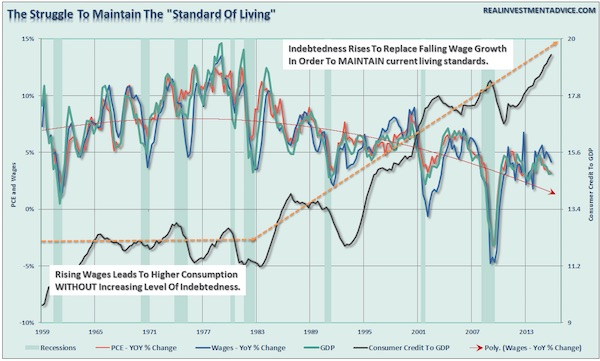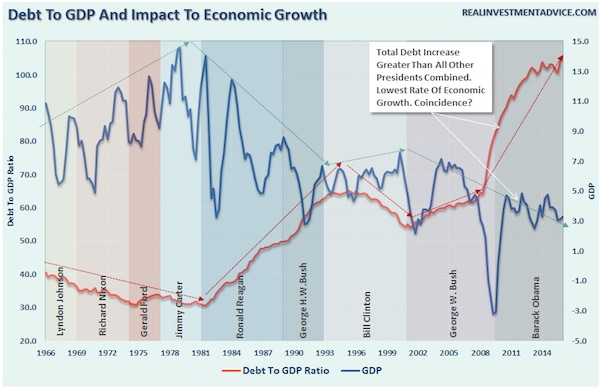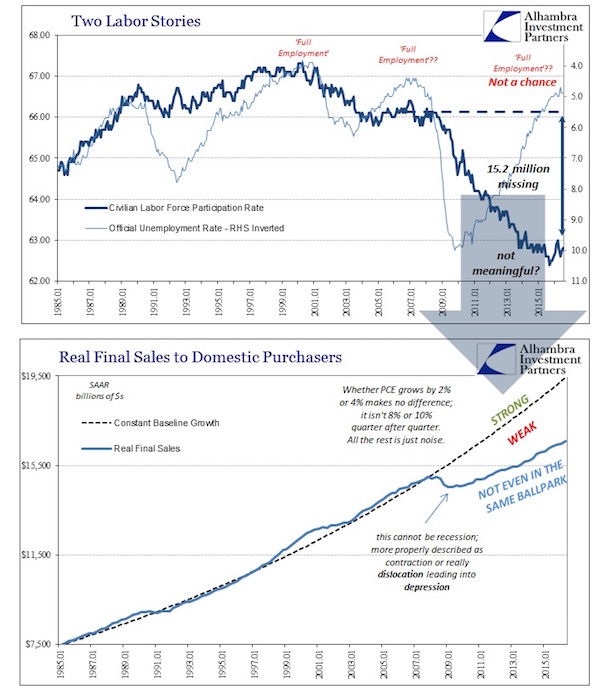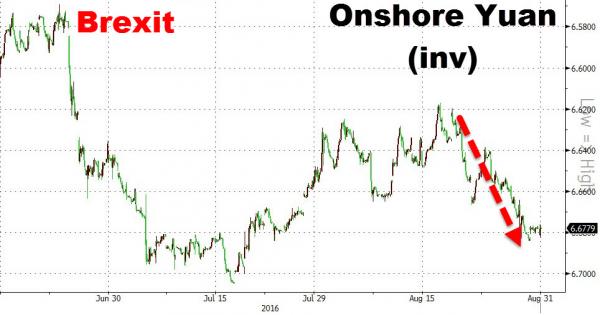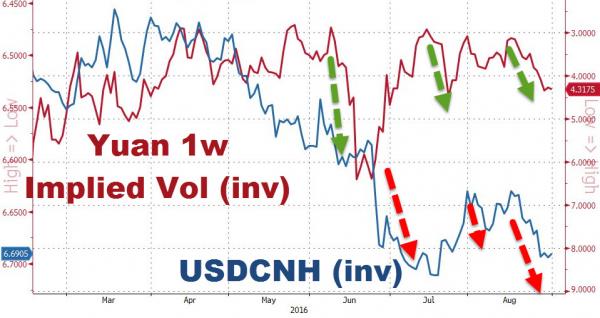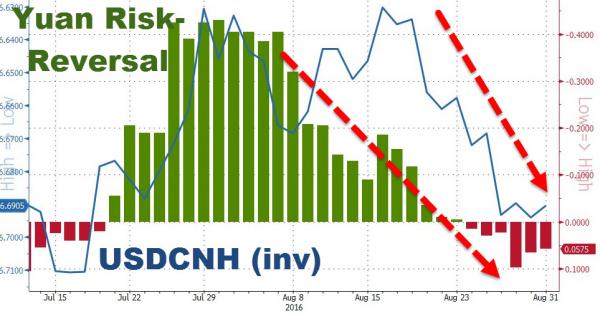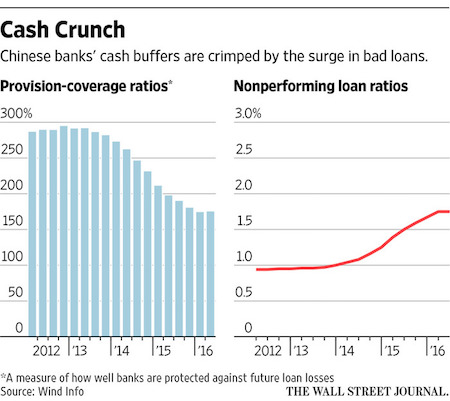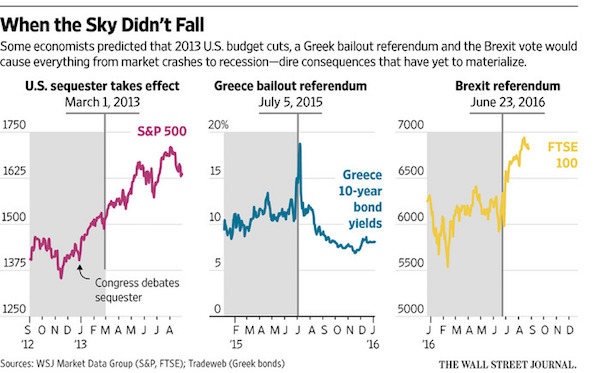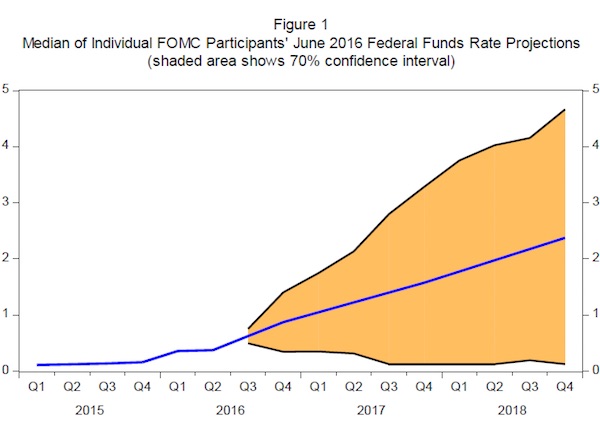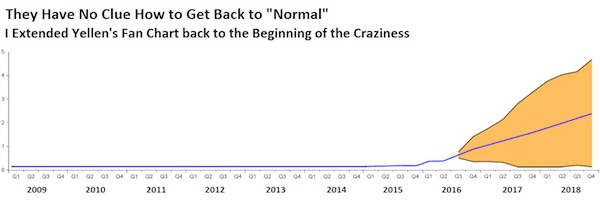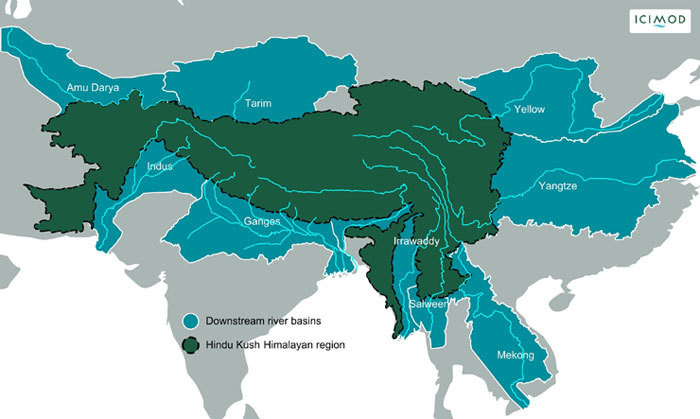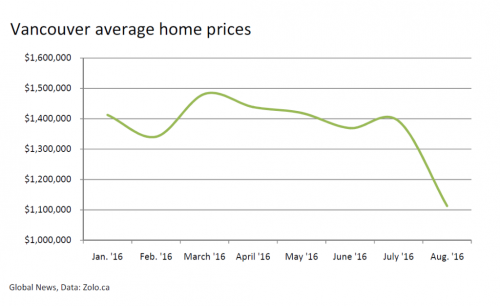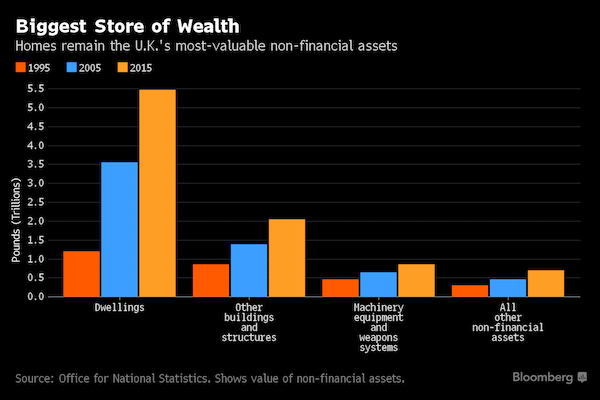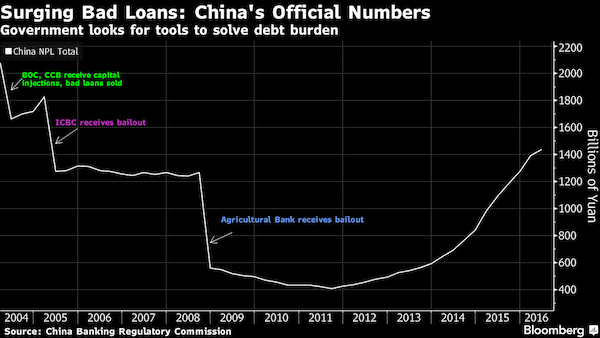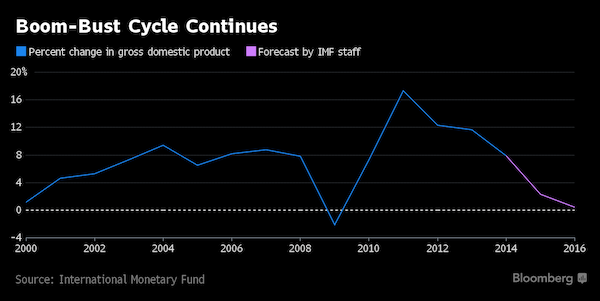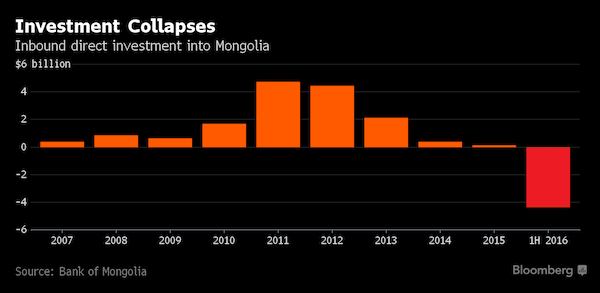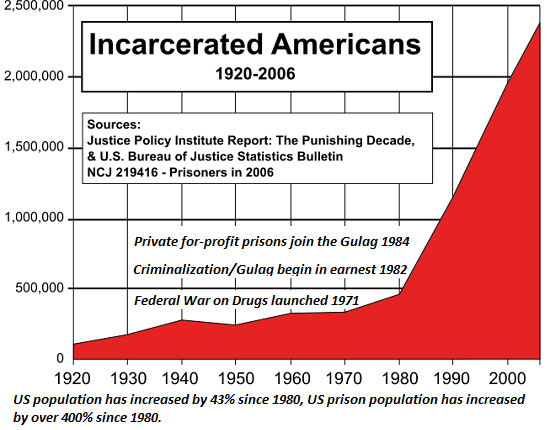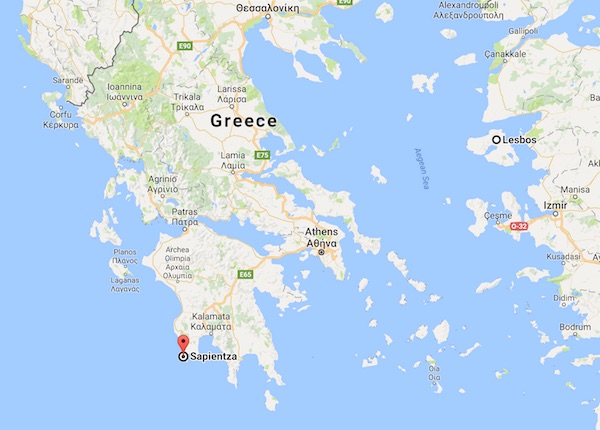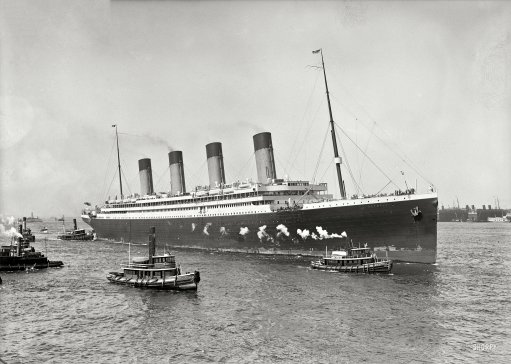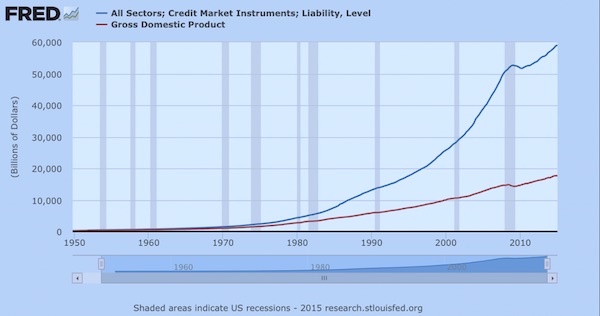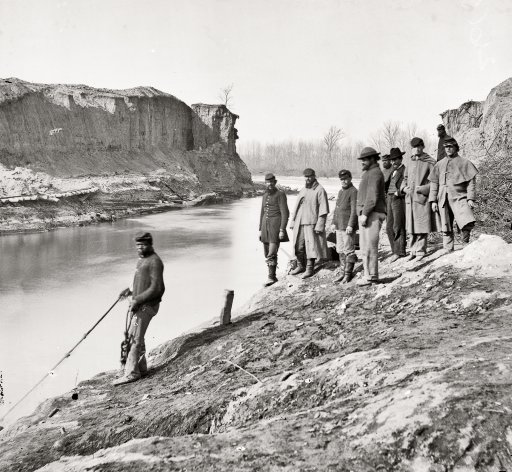
Unknown Army of the James, James River, Virginia. 1865

They all find it terribly hard to acknowledge that globalization is gone because growth is too. Wonder how long it will take them. A long five-part article.
• The End of Globalization? (Spiegel)
Who could have imagined in 2006 that such an outlandish billionaire like Donald Trump could become president of the United States? Who would have believed that the British would leave the European Union? Who would have thought it possible that a right-wing populist party in Germany would win over 10% support in several state elections? Nobody. Ten years ago, the world was a vastly different place. In 2006, Germany lived through its “Summer Fairytale” of hosting the football World Cup – still untainted by accusations of corruption – and presented itself as a cosmopolitan host. Russia was still part of the G-8 and welcomed world leaders to the summit in St. Petersburg. Pope Benedict XVI visited Turkey and prayed in the Blue Mosque. In Berlin, the first Islam conference took place, promoting better integration for the religion.
A Romano Prodi-led alliance defeated the populist Silvio Berlusconi in Italian parliamentary elections. And international trade grew by 9% while the Chinese economy spiked by almost 13%. Between then and now lie years of crisis. Banks and entire countries had to be bailed out, debt grew and faith in the economy and politics evaporated. Central banks chopped their interest rates again and again to stimulate the economy – with modest success and significant side-effects: Debt continued climbing around the world while in industrialized countries, savers suffered and middle-class retirement funds in particular took a hit. Now, in 2016, many people in Western, industrialized countries are worried about losing their jobs, their prosperity and that of their children. They see themselves as the losers of a development that has only helped the elite.
[..] It is a fact that globalization and free trade have increased global prosperity, but they have also increased inequality in the world’s wealthiest nations. They have made the biggest companies more powerful, because business operates globally while politics tends to be a local or regional affair, and made the world more vulnerable to crises, because everything is networked and the debts of American homeowners could lead the entire world to the brink of collapse. In short, globalization is responsible for a host of problems that would otherwise not exist. And it is therefore in the process of gambling away the trust of people around the world. Already today, global trade growth has slowed and state interference is on the rise. The world finds itself at a turning point. It must try to eliminate the drawbacks of globalization without destroying its advantages. If, on the other hand, protectionism and populism gain the upper hand, there is a danger that global prosperity could shrink. The age of globalization would be at an end.
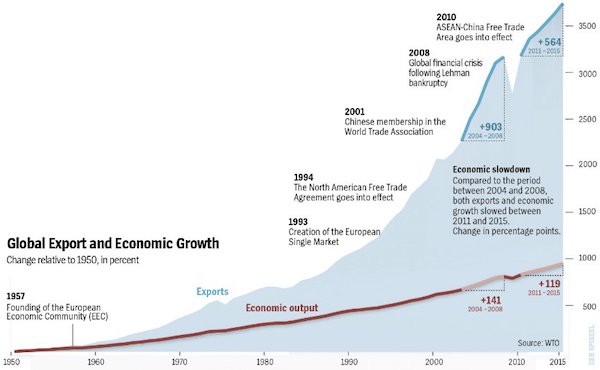

“The days of frenzied trade growth may be over.” No kidding.
• Global Trade Is Slowing (BBG)
Until he takes office in January, Donald Trump won’t be able to follow through on his pledges to scrap TPP, renegotiate NAFTA, or penalize Chinese imports. Even without him, protectionism is rising, and world trade is slowing. Responding to an outcry from local steelmakers, the EU this year has punished Chinese competitors for allegedly selling steel below cost. The EU has announced antidumping duties as high as 81.1% on Chinese steel. “Free trade must be fair, and only fair trade can be free,” EC VP Jyrki Katainen said in a statement on Nov. 9, adding that some 30 million European jobs depend on free trade. Around the world, many companies that binged on easy credit after the global financial crisis have excess capacity and are struggling to find buyers, since economic growth in the U.S., Europe, and Japan is relatively weak, and China’s economy is cooling.
“The pie is growing more slowly, and that makes domestic producers more defensive about their share of it and more willing to fight when threatened,” says Tim Condon, chief Asia economist in Singapore with ING. Bloomberg Intelligence chief Asia economist Tom Orlik points out that over the past two decades, consumers and businesses have spent heavily on laptops, tablets, and smartphones, but despite efforts by Apple and others to popularize smart watches, there’s no new must-have device to boost global trade. Stagnant income growth in the West also forces politicians to show they understand voters’ worries. “The pressure grows for governments to appease those voices by giving them the things they want,” says Orlik, “and the things they want are trade restrictions.”
[..] In the five months leading up to mid-October, members of the world’s 20 major economies, the Group of 20, implemented an average of 17 trade constraints a month, the World Trade Organization reported on Nov. 10. “The continued introduction of trade-restrictive measures is a real and persistent concern,” WTO Director-General Roberto Azevêdo said in a statement. The curbs come while global commerce is sputtering. World trade volume has grown a little more than 3% a year since 2012, the IMF reported last month, less than half the average expansion rate over the prior three decades. Said the IMF, “Between 1985 and 2007, real world trade grew on average twice as fast as global GDP, whereas over the past four years, it has barely kept pace. Such prolonged sluggish growth in trade volumes relative to economic activity has few precedents during the past five decades.”

As always, I’m uncomfortable with the definition of inflation used here, it obscures the argument.
• US Recovery Is Heading Towards Its Death: Albert Edwards (CNBC)
Societe Generale’s resident uber-bear, Albert Edwards, says the very long economic recovery underway in the U.S. is gearing up to suffer a “very traditional death” as consumption will likely crumble under rapidly stepped-up inflation and tighter monetary conditions next year. In Edwards’ own words, “Even if the Fed refuses to tighten, monetary conditions will tighten dramatically anyway as bond yields and the dollar surge, exacerbating the profits recession.” “The surge in headline inflation from zero to 2.5%-3% in Q1 next year is likely to crush consumption,” he continued, adding, “The expected expansion of the fiscal deficit under Trump will not prevent this happening in 2017 as it will come too late – in 2018/19.”
Edwards breaks down the recent spike in nominal bond yields by pointing out it has been driven by spiraling inflation expectations with real yields staying relatively steady. An anomaly in the current situation, he says, is that this has occurred without an accompanying surge in oil prices. However, what has risen more quickly than acknowledged by the U.S. Federal Reserve or the broader market, in his view, is real wage inflation, partially disguised by the weakness of nominal wage inflation given subdued consumer price index (CPI) inflation. But as we move into an era of higher CPI inflation, Edwards warns that it is such real wage inflation that will slip to zero before long. According to Edwards, “We might quibble about how much nominal wage inflation might accelerate in a weak economic and corporate profits environment, but accelerate it will.”
Why this is so important, he notes, is that it is likely to propel the Fed into action. Speaking about the U.S. central bank, he says “to those who retort that the increasingly weak economy in H1 2017 means they should not tighten, I would probably agree. But that doesn’t mean the Fed won’t be forced into it by surging wage inflation.” The knock-on effect for bonds will come through in the form of a continued rise in yields over the next six months with the trend upwards now having become a momentum trade with investors “looking for a narrative to support the direction of travel”.

“81% of American’s are now worse off than they were in 2005..”
• US Retail Sales, Ignorance & Return Reality (Roberts)
There was an awful lot of cheering about the recent retail sales report which showed an uptick of 0.8% which beat the analyst’s estimates of 0.6%. Despite the fact the improvement was driven by a surge in gasoline prices (which is important as consumers did not consume MORE of the product, but just paid more for it) important discretionary areas like restaurants and furniture declined. However, if we dig deeper behind the headlines more troubling trends emerge for the consumer which begins to erode the narrative of the “economy is doing great” and “there is no recession” in sight. [..] Despite ongoing prognostications of a “recession nowhere in sight,” it should be remembered that consumption drives roughly 2/3rds of the economy. Of that, retail sales comprise about 40%. Therefore, the ongoing deterioration in retail sales should not be readily dismissed. More troubling is the rise in consumer credit relative to the decline in retail sales as shown below.
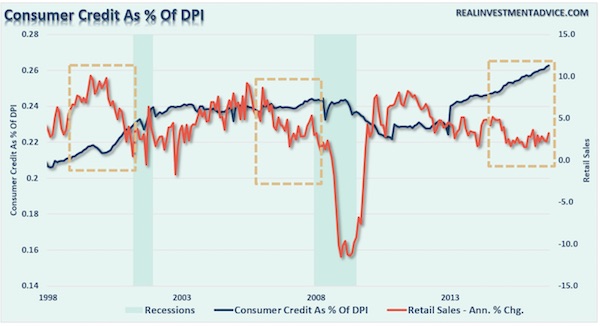
What this suggests is that consumers are struggling just to maintain their current living standard and have resorted to credit to make ends meet. Since the amount of credit extended to any one individual is finite, it should not surprise anyone that such a surge in credit as retail sales decline has been a precursor to previous recessions. Further, the weakness of consumption can be seen in the levels of retailers inventory relative to their actual sales. We can also view this problem with retail sales by looking at the National Federation of Independent Business Small Business Survey. The survey asks respondents about last quarter’s actual sales versus next quarter’s expectations.
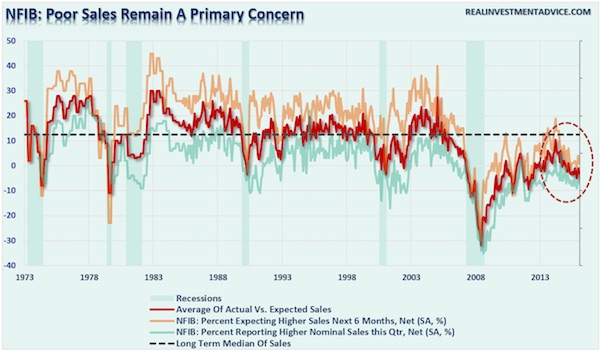
[..] it really isn’t just the Millennial age group that are struggling to save money but the entirety of the population in the bottom 80% of income earners. According to a recent McKinsey & Company study, 81% of American’s are now worse off than they were in 2005: “Based on market income from wages and capital, the study shows 81% of US citizens are worse off now than a decade ago. In France the figure is 63%, Italy 97%, and Sweden 20%.”
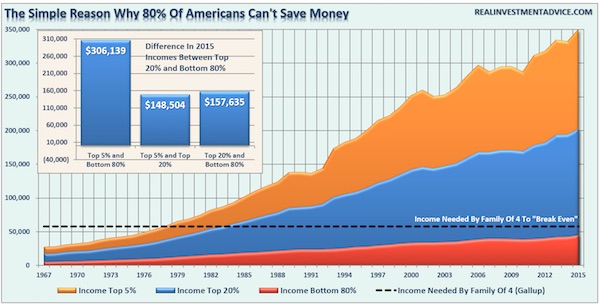

If you don’t like the models, well, we have other ones.
• How “Dynamic Scoring” Could Justify A Debt Driven Keynesian Stimulus (BBG)
Republicans have long argued that economic growth from tax cuts should be fed back into the model, year by year. They call this approach “dynamic scoring” or “macroeconomic analysis.” For the first time, macroeconomic analysis will likely prevail in next year’s official scores for major revenue bills from the JCT. Some Democrats, who’ve been suspicious of an approach that makes tax cuts look cheaper, are slowly warming to the same idea for appropriations bills. It could make infrastructure spending look cheaper, too. Into this fussing over details strides Donald Trump. During the campaign, he proposed a tax cut that would cost, according to his own preferred estimate, $4.4 trillion. And to pay for it, his campaign proposed a new kind of analysis, an economic model radically more complex than what either academics or policymakers have tried in the past.
All aspects of Trump’s plan, including trade and regulatory rollbacks, would be part of the analysis. Together, the campaign argued, they would create enough growth, and therefore enough tax revenue, to offset all but about $200 billion of those tax cuts. The real challenge of budgeting is to offer something, but at a discount. In 2017 dynamic scoring will let the Republican majority offer tax cuts without having to offset them entirely with spending cuts. It may even offer infrastructure spending—without having to renege on the promise of tax cuts. If the models are right, they’re right. If they’re wrong, the tax cuts will be a debt-driven Keynesian stimulus. Dynamic scoring arrived on the Republican wave of 1994. In January 1995, as one of its first acts, the new GOP majority in Congress invited Alan Greenspan, among others, to a rare joint hearing of the budget committees.
The representatives wanted to talk about macroeconomic models of budget changes. Greenspan, then the chairman of the Federal Reserve and thus in charge of the world’s best-known macroeconomic modeler, was skeptical. Then as now, the CBO every year produces a 10-year projection of economic growth. This is the “baseline,” the fixed point from which everything else is calculated. Under “static analysis,” modelers in Washington make assumptions about human behavior. But as they project out into the future, they can’t change the CBO’s baseline gross domestic product. Under “dynamic analysis,” they can. Next year’s projected growth changes the baseline for the year after, and so on. If static analysis is arithmetic, dynamic analysis is calculus.

The comparisons only hold up to a point, as Trump will find out. There’s nowhere to grow to anymore. But focusing on domestic production and consumption can still solidify the economy somewhat.
• How US Federal Revenues Have Been Used To Steer The Economy In The Past (BBG)
Donald Trump plans massive fiscal stimulus to combat lackluster growth just as the budget deficit begins rising again, making this a good time to look at how federal revenues have been used to steer the economy in the past. After the six recessions prior to the 2007-2009 downturn, lawmakers let the deficit’s share of GDP rise for an average of 15 months to make sure the economy was back on track. Following the last downturn, the most severe since World War II, Barack Obama’s stimulus gave way to Republican-backed spending cuts to shrink the deficit within just eight months – and the weakest recovery in decades.
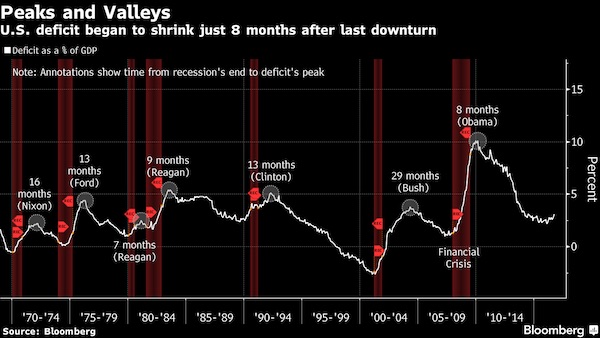

She won’t be able to stop the first rate hike, and after that things will be very different anyway.
• Yellen: I’m Not Stepping Down Until My Term Is Done (CNBC)
Forget all that talk about Janet Yellen stepping down if Donald Trump becomes president: The Fed chair told Congress on Thursday she’s not leaving. Trump has been critical of the central bank leader and has suggested that he would replace her at some point. He once told CNBC that Yellen should be “ashamed” of her actions, saying her policies were political positions to help President Barack Obama. Amid expectations that the president-elect would step up political pressure on the Fed after he takes office in January, there was chatter that Yellen might just step aside. “No I cannot,” she said when asked by Rep. Carolyn Maloney if there were circumstances under which she might leave before her term expires. “I was confirmed by the Senate to a four-year term, which ends at the end of January of 2018, and it is fully my intention to serve out that term.” If Trump removes her from the chair, she could still stay on as a governor until her 14-year term expires in 2024.

Yeah, lead the collapse!
• Europe At Risk Of Collapse; France, Germany Must Lead – French PM (R.)
The EU is in danger of breaking apart unless France and Germany, in particular, work harder to stimulate growth and employment and heed citizens’ concerns, French PM Manuel Valls said in the German capital on Thursday. Valls said the two countries, for decades the axis around which the EU revolved, had to help refocus the bloc to tackle an immigration crisis, a lack of solidarity between member states, Britain’s looming exit, and terrorism. “Europe is in danger of falling apart,” Valls said at an event organized by the Sueddeutsche Zeitung. “So Germany and France have a huge responsibility.” He said France must continue to open up its economy, not least by cutting corporate taxation, while Germany and the EU as a whole must increase investment that would stimulate growth and job creation, as well as boosting defense.
As Britain seeks to negotiate its post-Brexit relationship with the EU, hoping to restrict immigration from the EU while maintaining as much access as possible to the EU single market, Valls said it must be prevented from cherry-picking. “If they are able to have all the advantages of Europe without the inconveniences, then we are opening a window for others to leave the EU,” Valls said. Immigration was one of the main drivers of Britons’ vote to leave the EU, and Valls said the bloc, which more than a million migrants entered last year, had to regain control of its borders. He said the Brexit vote and Donald Trump’s election victory showed how important it was to listen to angry citizens, and that politicians scared of making decisions were opening the door to populists and demagogues.
In France, opinion polls suggest that the far-right, anti-EU, anti-immigration National Front leader Marine Le Pen will win the first round of the presidential election next April, before losing the runoff.

He has no choice.
• Renzi Renews Pledge To Resign If He Loses Referendum (Local.it)
Italian Prime Minister Matteo Renzi said on Wednesday that he would have no interest in a government role if he loses Italy’s upcoming constitutional referendum. In an interview on Italian radio, the premier said: “I’m here to change things. If that doesn’t happen, there is no role for me to play.” If the ‘No’ vote wins on December 4th and Renzi’s proposed changes to the constitution are rejected, it is likely that a temporary or technical government will be formed to change the electoral law before general elections can be held. The PM said he would not be willing to seek a deal with other parties to form a coalition if this happens, adding that he didn’t want to take part in “old-style political games”. Renzi vowed to “fight like a lion” to win the vote and said he believed the “silent majority” of voters would back him in the referendum.
He is currently touring the south of the country, where the ‘No’ camp’s lead is strongest. However, he also emphasized that he didn’t envisage a ‘No’ victory causing immediate problems in the country. “The 5th of December won’t be Armageddon,” said Renzi. “If ‘No’ wins, everything will stay as it is. Italians shouldn’t be fooled by politicians who are fighting to keep the privileges they have always had.” The reforms would see the number of senators and their legislative power drastically reduced, which Renzi claims will cut down on bureaucracy, making government more stable and efficient. But his opponents argue that there are inconsistencies in his proposed changes, and that they would put too much power in the hands of the prime minister.

I like McWilliams, but Trumpism is a nonsensical term, and Italy’s resistance against the EU and globalization was way earlier than Trump became an issue. Correlation and causation.
• Italy Is The Next Country To Fall To Trumpism (David McWilliams)
The Bangladeshi selfie-stick hawkers are doing a brisk trade outside the Colosseum. Local chain-smoking lads dressed as gladiators prey on vulnerable tourists, while portly priests on their annual visit to Catholicism’s corporate HQ take time out from soul-searching. Even the heavily armed soldiers, there to protect against a potential Italian Bataclan, are smiling in the Mediterranean sunshine. And as it is midday in Italy, everyone is checking out everyone else. All looks quite normal, chilled out and as it should be. But it is not. Italy is a country going through what could be described as a nervous breakdown. After a decade of almost no economic growth, in two weeks Italians will vote in a referendum which will determine what direction this huge country of nearly 60 million people will take. The result will profoundly affect the EU.
Although the referendum is technically about the way Italy is governed, the country is split down the middle in a plebiscite that has come to symbolise something much bigger. Once again, like the Brexit vote and the Trump election, this referendum is about insiders against outsiders. It is about those who are the victims of inequality and globalisation and those who uphold the status quo. On one side, you have the Italian political elite — the insiders embodied by Matteo Renzi, the youthful prime minister. He represents the people and institutions that have ruled Italy for decades. On the other side, you have an unusual anti-EU coalition, the Left and the Right — the ‘Outsiders’ — who are united by a common belief that, after 10 years of economic stagnation, there must be another way.
We have the same picture we saw in the UK in June and in the US last week, where an elite is desperately trying to connect with the people and large swathes of the population are saying they have had enough. In terms of the big picture, the Italian election can be seen as yet another domino in a year of falling dominos. First we had Brexit, then Trump, and the next big one for Europe after Italy is the potential rise of Le Pen in France. Italy is the triplet in a quartet that will culminate in France, and, in my opinion, if the Italian elite loses on December 4th, Marine Le Pen will win in France.

The amounts are mind-boggling. Money in, waste out.
• EU Reinforces 2017 Budget On Migration And Jobs (EUO)
EU member states and European Parliament have reached an agreement on a budget for next year that focuses on tackling the migration crisis and creating jobs. After 20 hours of discussions, a deal was reached early on Thursday (17 November) to set the total commitments for 2017 at €157.88 billion and payments at €134.49 billion. “The 2017 EU budget will thus help buffer against shocks, providing a boost to our economy and helping to deal with issues like the refugee crisis,” budget commissioner Kristalina Georgieva said. The budget commits €5.91 billion to tackling the migration crisis and reinforcing security, an 11.3% increase on 2016’s figure, according to a statement from the EU Council, which represents member states.
The money will help EU countries resettle refugees, create reception centres, and return those who have no right to stay. Extra spending will also go to help enhance border protection, crime prevention, counter terrorism activities and protect critical infrastructure. A total of €21.3 billion was put aside to boost economic growth and create new jobs, which is an increase of around 12% compared with this year, the council said. The Erasmus+ scheme, a cross-border student programme, will see an increase of its budget of 19%. The 2017 budget also includes €500 million for youth unemployment, and a €42.6 billion support for farmers.

The Russians are highly aware of what Facebook and Alphabet are doing: “Not replacing foreign IT would be equivalent to dismissing the army.”
• Kremlin Ramps Up Efforts To Crack Down On US Tech Companies (BBG)
In a Nov. 14 phone call with President-elect Donald Trump, Russian President Vladimir Putin held out the prospect of better relations between their two countries. But U.S. tech companies shouldn’t expect warmer ties to ease a Kremlin effort to freeze out their products. Seeking to cut dependence on companies such as Google, Microsoft, and LinkedIn, Putin in recent years has urged the creation of domestic versions of everything from operating systems and e-mail to microchips and payment processing. Putin’s government says Russia needs protection from U.S. sanctions, bugs, and any backdoors built into hardware or software. “It’s a matter of national security,” says Andrey Chernogorov, executive secretary of the State Duma’s commission on strategic information systems. “Not replacing foreign IT would be equivalent to dismissing the army.”
Since last year, Russia has required foreign internet companies to store Russian clients’ data on servers in the country. In January the Kremlin ordered government agencies to use programs for office applications, database management, and cloud storage from an approved list of Russian suppliers or explain why they can’t—a blow to Microsoft, IBM, and Oracle. Google last year was ordered to allow Android phone makers to offer a Russian search engine. And a state-backed group called the Institute of Internet Development is holding a public contest for a messenger service to compete with text and voice apps like WhatsApp and Viber. Russia’s Security Council has criticized the use of those services by state employees over concerns that U.S. spies could monitor the encrypted communications while Russian agencies can’t. Trump’s election hasn’t changed those policies, according to Putin spokesman Dmitry Peskov. “This doesn’t depend on external factors,” he says. “It’s a consistent strategy.”

Do try and wrap your head around the irony of this being published by the NYT, on of the main media companies whose disfunctionality makes Wikileaks so necessary.
• Why the World Needs WikiLeaks (Sarah Harrison)
My organization, WikiLeaks, took a lot of heat during the run-up to the recent presidential election. We have been accused of abetting the candidacy of Donald J. Trump by publishing cryptographically authenticated information about Hillary Clinton’s campaign and its influence over the Democratic National Committee, the implication being that a news organization should have withheld accurate, newsworthy information from the public. The Obama Justice Department continues to pursue its six-year criminal investigation of WikiLeaks, the largest known of its kind, into the publishing of classified documents and articles about the wars in Iraq and Afghanistan, Guantánamo Bay and Mrs. Clinton’s first year as secretary of state. According to the trial testimony of one F.B.I. agent, the investigation includes several of WikiLeaks founders, owners and managers.
And last month our editor, Julian Assange, who has asylum at Ecuador’s London embassy, had his internet connection severed. I can understand the frustration, however misplaced, from Clinton supporters. But the WikiLeaks staff is committed to the mandate set by Mr. Assange, and we are not going to go away, no matter how much he is abused. That’s something that Democrats, along with everyone who believes in the accountability of governments, should be happy about. Despite the mounting legal and political pressure coming from Washington, we continue to publish valuable material, and submissions keep pouring in. There is a desperate need for our work: The world is connected by largely unaccountable networks of power that span industries and countries, political parties, corporations and institutions; WikiLeaks shines a light on these by revealing not just individual incidents, but information about entire structures of power.
While a single document might give a picture of a particular event, the best way to shed light on a whole system is to fully uncover the mechanisms around it – the hierarchy, ideology, habits and economic forces that sustain it. It is the trends and details visible in the large archives we are committed to publishing that reveal the details that tell us about the nature of these structures. It is the constellations, not stars alone, that allow us to read the night sky. [..] WikiLeaks will continue publishing, enforcing transparency where secrecy is the norm. While threats against our editor are mounting, Mr. Assange is not alone, and his ideas continue to inspire us and people around the world.

Just another day.
• Another 100 Migrants Feared Drowned in Mediterranean (AFP)
The toll of missing and dead rose Thursday in a grim week of Mediterranean crossings as African survivors described being robbed of life jackets and boat engines and abandoned to a watery grave. A group of 27 survivors, all men, were plucked to safety on Wednesday, but roughly 100 other passengers who set off with them from Libya were missing and feared drowned, Doctors Without Borders (MSF) said. Along with two other shipwrecks this week, the latest incident pushed the toll to 18 confirmed dead and 340 missing, in what was already the most lethal year ever recorded for migrant deaths at sea. The survivors rescued Wednesday by a British Navy ship, described being stripped of their sole means of survival by the men they had paid for safe passage.
They had set off before dawn on Monday from a beach close to Tripoli. After several hours the traffickers, travelling aboard a separate boat, ordered them at gunpoint to hand over life jackets they had paid for, as well as the boat engine, and left them without a satellite phone to call for help. “At that point I thought we were going to die”, said Abdoullae Diallo, 18, according to MSF. “Without a motor, we couldn’t go far. A trafficker told us we would be rescued but I felt like we were going to die.” The overcrowded dinghy began rapidly taking on water and deflated. Tossed for two days and nights on rough seas, some passengers fell overboard, while others succumbed to exhaustion. By the time the British Royal Navy’s HMS Enterprise – engaged in the anti-trafficking Sofia operation – found them, just 27 people were left alive, clinging to what was left of the dinghy.
[..] The first group of survivors were brought to Catania, in Sicily, while the second group were expected to arrive on Italy’s mainland in the port of Reggio Calabria Some were children. “One young boy has been weeping, asking for his mother,” Mathilde Auvillain, a spokeswoman for SOS Mediterranee told AFP. “Another has written a list of names of the people travelling with him and re-reads it over and over. He wants to know if his friends are on the boat or in the sea,” she said.

Watching in bewilderment.
• The North Pole Is An Insane 36º Warmer Than Normal As Winter Descends (WaPo)
Political people in the United States are watching the chaos in Washington in the moment. But some people in the science community are watching the chaos somewhere else — the Arctic. It’s polar night there now — the sun isn’t rising in much of the Arctic. That’s when the Arctic is supposed to get super-cold, when the sea ice that covers the vast Arctic Ocean is supposed to grow and thicken. But in the fall of 2016 — which has been a zany year for the region, with multiple records set for low levels of monthly sea ice — something is totally off. The Arctic is super-hot, even as a vast area of cold polar air has been displaced over Siberia. At the same time, one of the key indicators of the state of the Arctic — the extent of sea ice covering the polar ocean — is at a record low. The ice is freezing up again, as it always does this time of year after reaching its September low, but it isn’t doing so as rapidly as usual.
